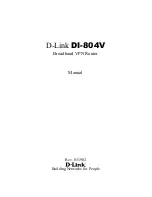
ATX Thermal/Mechanical Design Information
Thermal and Mechanical Design Guidelines
61
6.3
Environmental Reliability Testing
6.3.1
Structural Reliability Testing
Structural reliability tests consist of unpackaged, board-level vibration and shock tests
of a given thermal solution in the assembled state. The thermal solution should meet
the specified thermal performance targets after these tests are conducted; however,
the test conditions outlined here may differ from your own system requirements.
6.3.1.1
Random Vibration Test Procedure
Duration: 10 min/axis, 3 axes
Frequency Range: 5 Hz to 500 Hz
Power Spectral Density (PSD) Profile: 3.13 G RMS
Figure
6-4. Random Vibration PSD
0.001
0.01
0.1
1
10
100
1000
Frequency (Hz)
PSD
(g
^
2
/H
z
)
3.13GRMS (10 minutes per axis)
5 Hz
500 Hz
(5, 0.01)
(20, 0.02)
(500, 0.02)
6.3.1.2
Shock Test Procedure
Recommended performance requirement for a motherboard:
•
Quantity: 3 drops for + and - directions in each of 3 perpendicular axes (i.e.,
total 18 drops).
•
Profile: 50 G trapezoidal waveform, 170 in/sec minimum velocity change.
•
Setup: Mount sample board on test fixture.
Summary of Contents for Celeron Dual-Core E1000 Series
Page 10: ...10 Thermal and Mechanical Design Guidelines...
Page 26: ...Processor Thermal Mechanical Information 26 Thermal and Mechanical Design Guidelines...
Page 68: ...ATX Thermal Mechanical Design Information 68 Thermal and Mechanical Design Guidelines...
Page 86: ...Heatsink Clip Load Metrology 86 Thermal and Mechanical Design Guidelines...
Page 88: ...Thermal Interface Management 88 Thermal and Mechanical Design Guidelines...
Page 120: ...Legacy Fan Speed Control 120 Thermal and Mechanical Design Guidelines...
Page 126: ...Fan Performance for Reference Design 126 Thermal and Mechanical Design Guidelines...
Page 127: ...Fan Performance for Reference Design Thermal and Mechanical Design Guidelines 127...
















































